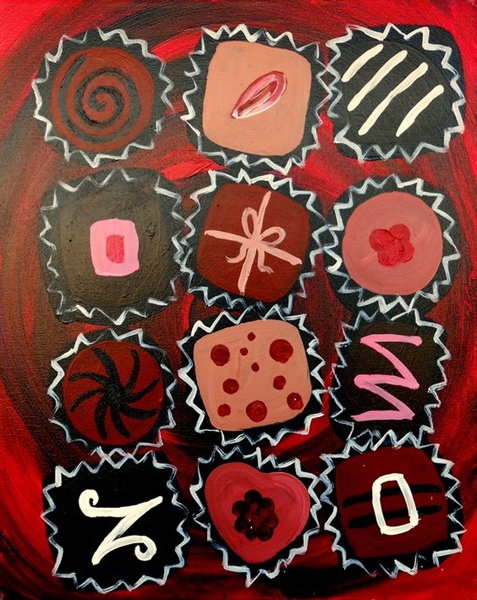We’ve all had horrible days. In this longer-than-usual post, I’d like to share an extraordinary example of mentorship that was forwarded to me.
Dr. Dan Wilensky responds electronically to a trainee who recently wrote in her online reflective journal about a particularly difficult day. Dan is a family practice physician, an active primary care provider for 15 years. He is Chief of Preceptors for Community Health Center, Inc.’s Nurse Practitioner Residency program and preceptor trainer for CHC’s remotely hosted NP postgraduate training programs across the country. He is widely respected for his clinical expertise, wisdom and empathy. His words below are classic “Dr. Dan.” Do they strike a chord? Judge for yourself:
“Hi,
I read your recent reflective journal entry and I’d like to chime in with some words of support. It was incredibly well written and moving. The level of misery and complexity in that one day you mention is, of course, indicative of the profound distress that some of our communities are experiencing. And that they all fell together is the uncertainty of primary care. Just as with Forrest Gump’s box of chocolates, you never know what you’re going to get. All of us in Family Medicine have had the day when everything is overwhelming, and every patient is overwhelmed. But I think few of us have experienced the level of onslaught that you faced on that day you described.
We all want to be completely present for every patient’s needs. How do we do that and not wind up hours behind? How do we do that and not wind up emotionally and physically drained? I wish I had the answer for you. I don’t…but there are answers that, in some combination, may get you through a day like that. Let me lay out a few.
- I’d dare say that most days are broken up by easier visits in between medically and psychiatrically complex cases. Sounds like this one wasn’t. But when they are, one thing that I’ve found newer clinicians very poor at is allowing a quick visit to be a quick visit. If you figure out in the first minute that somebody just needs an ear check or a note for school, be friendly, accommodating, and lightning fast. It is not an exaggeration to say that I sometimes have 2-minute visits. Remember that the patient has spoken to a person to get the visit, spoken to the MA (Medical Assistant), gotten vitals and maybe other tests…they might not perceive the visit as actually having been 2 minutes. But, even if they do, they have what they needed. As I’ve walked out of rooms, I’ve often heard an excited voice say, “Boy, that was so quick.”
- Saying “not it”: When I was a kid, we started a game of tag by all screaming “not it.” The last person to say it was “it.” If you can quickly realize that the person needs a different level of care, you don’t need to actually be the one to do the full assessment or even to help the patient process fully what’s going on. Say to yourself “not it” and focus on making the quick transition. When there is suicidality, as there often is, you may need to be the one to assess the level of concern, and you should have some skills in this realm. But if you have a BH (Behavioral Health) person who’s going to assist you, get going on that quickly and then trust that person’s assessment. You can still be kind and quick when you are not “it.”
- Asking for help: Times will arise when you just can’t keep up. Even now, after practicing for years, I sometimes have to drop everything to go take care of a person in the hospital, knowing that I had a half-dozen patients already in the office. You can’t be in three places in once and if it seems impossible to you, chances are it is impossible. As you get to know a place, you know who can help you get out of a jam: a colleague, the nurse manager, the office manager, your nurse, your MA, a BH colleague (as above), and as you’re still a Resident—your preceptor! If you say, “I’m 90 minutes behind and the next cases are clearly going to take way more than their allotted time because of how much is going on and one of them is suicidal and I have to see him soon,” then your team should be able to offload your schedule in some way. Of course, this kind of call for help has to be infrequent. If you find yourself in an environment in which it’s like this for you much of the time, you need to expand that system and engage leadership. If you are in a situation in which you can’t feel like you can ever get your head above water and the system won’t adjust, you need to be willing to find another position. Oh, and if asking doesn’t work, then demanding is appropriate.
- “This is what I can do”: I have had a bunch of days in my career when I’ve had someone on my team tell patients that I’m sorry but there was an emergency or set of urgencies, I’m running 2 hours behind, I’m willing to see anybody who stays, but I can’t speed up. The patient can speak to the nurse, go to the front to reschedule, seek care elsewhere, or choose to wait for hours. The patients will then sort themselves out and you may even be surprised at the end of the session when you’re done hours sooner than you would have expected. Sometimes what you perceive as a patient in an urgent crisis was actually a patient who had previously decided when and how the drama was going to play out. That patient may be plenty able to decide that it’s not worth the wait. I then make a quick apology to everybody who I do see and thank them for their patience, but I get each patient down to business pretty quickly.
- “Take a breath”: How do you clear your head for the next visit when it’s like this? If you carry your stressors into the next room, they will snowball. One approach that’s taught is “2 feet, 1 breath.” Get yourself into the present before you walk in. Two feet on the ground, gather in your surroundings, take a mindful, unrushed breath, then go in. I have added to this for myself: “smile and let it go.” You don’t really want to walk in the door 2 hours late with a goofy smile on your face. But the act of smiling right before walking in the door loosens me up, gets me in the right frame of mind…and if I walk in and the patient gives me a smile or a knowing look like “you must be exhausted,” I have that smile ready to pop back out. I do this before many visits, actually. I’ve found that my borderline personality patients, my “difficult” patients, etc., are less likely to lash out at me when I have done it. If you can’t do this, if you’re too overwhelmed, you actually need more time, not less. In meditation they say, “meditate for 30 minutes every morning, unless you don’t have time…in that case, meditate for an hour.” Instead of one breath in front of the exam room, I might take several breaths while I step outside and get some air. Sure, you don’t have time to do that, but you also don’t have time and sanity not to do that.
- “I give every patient what he needs, but some days nobody gets what they want”: I’ve said this quite a few times in my career. Your job as the clinician is to be able to quickly sort out the true needs…and on days like this, what is absolutely needed today?
- “Temporize”: Instead of fully addressing an extra problem (or even the main problem), figure out the next test or the next step and let the patient know that you will review it again next time (or by phone…or your nurse will call). A deliberate pause may make sense.
- Of course, remember you’re doing really good work and give yourself credit. You could have done something easier, but you could also have wound up doing something much less rewarding. You are going to have a long career in which you will have profound positive impact. But you aren’t going to be a superhero every day. And you’ve got to forgive yourself if you don’t have the emotional energy to have the level of sympathy or empathy you feel you would normally have in such a circumstance. That is part of the human experience.
Keep up the great work. Thanks for sharing. I hope that you have already found some recovery.
Dan”
What an extraordinary response to a trainee’s exhausting and excruciating day! What an example of the beauty and power of mentorship! In all its forms – peer to peer, preceptor to trainee – mentorship supports the joys (and challenges) of clinical practice including managing the unexpected. Because, as with that box of chocolates, you never know what the day will bring.
Dan’s response is a superb example of how technology–when it is thoughtfully integrated with clinical practices and learning environments–can create a private, personal and safe learning space. Mentoring occurs in many ways, using many media; technology can and should enhance and deepen this essential hallmark of postgraduate NP training.
Happy autumn…
Candice


